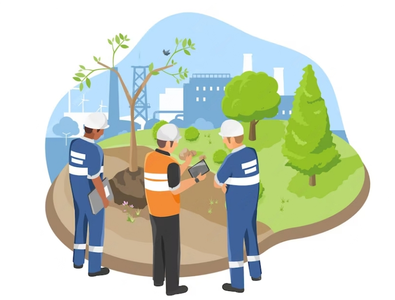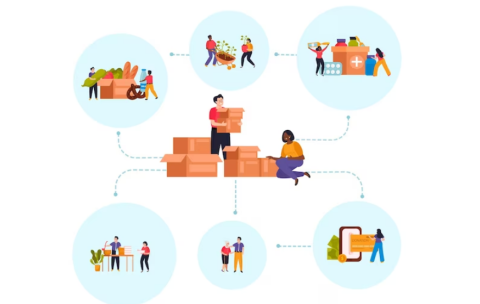Popular Topics
Popular Instructors
All Career Vista Courses
Banking and Financial Services Management
Banking and Financial Services Management is a critical sector in …
What you'll learn
Week 1: Introduction to Banking and Financial Services (4 Hours)
Session 1 (2 Hours): Overview of the Banking and Financial Services Industry
Understanding the Global Banking Landscape
Key Components and Functions of Financial Services
Evolution of Banking and Financial Institutions
Session 2 (2 Hours): Regulatory Environment and Compliance
Overview of Banking Regulations and Compliance Requirements
Impact of Regulations on Banking Operations and Risk Management
International Banking Regulations and Compliance Challenges
Week 2: Strategic Management in Banking and Finance (6 Hours)
Session 3 (2 Hours): Risk Management in Financial Services
Fundamentals of Risk Management in Banking
Identifying and Managing Various Types of Risks (Credit, Market, Operational)
Tools and Techniques for Risk Assessment and Mitigation
Session 4 (2 Hours): Financial Analysis and Performance Management
Techniques for Financial Statement Analysis in Banks
Performance Metrics and Management in Financial Services
Balancing Profitability with Risk and Regulatory Compliance
Session 5 (2 Hours): Technology and Innovation in Financial Services
Impact of Digital Transformation in Banking
Fintech Innovations and Their Implications for Traditional Banking
Embracing Technology for Enhanced Customer Service and Operational Efficiency
Week 3: Advanced Topics in Banking and Financial Services (6 Hours)
Session 6 (2 Hours): Asset and Liability Management
Principles of Asset and Liability Management (ALM) in Banks
Strategies for Managing Liquidity and Interest Rate Risk
Balance Sheet Management in Financial Institutions
Session 7 (2 Hours): Investment Banking and Wealth Management
Overview of Investment Banking Services
Trends and Challenges in Wealth Management
Roles of Financial Advisors and Portfolio Managers
Session 8 (2 Hours): Global Banking and International Finance
Dynamics of International Banking and Finance
Managing Cross-Border Financial Operations
Understanding Global Financial Markets and Instruments
Week 4: Leadership and Ethical Considerations (4 Hours)
Session 9 (2 Hours): Leadership and Organizational Behavior in Financial Institutions
Leadership Styles and Skills for Banking Executives
Fostering Ethical Culture and Corporate Governance in Financial Institutions
Managing Change and Innovation in Banking Organizations
Session 10 (2 Hours): Capstone Project Presentations and Course Conclusion
Development and Presentation of Capstone Projects on Strategic Challenges in Banking and Financial Services
Peer Review and Feedback
Course Recap: Future Trends and Career Pathways in Banking and Financial Services
This course structure ensures MBA students gain a comprehensive understanding of banking and financial services management, combining theoretical knowledge with practical case studies, exercises, and a capstone project. The curriculum is designed to prepare students for leadership roles in banking and finance, emphasizing strategic management, risk assessment, regulatory compliance, and technological advancements in the industry.
Strategic Tourism and Hospitality Management
Strategic Tourism and Hospitality Management is a dynamic field focusing …
What you'll learn
Week 1: Fundamentals of Tourism and Hospitality Industry (4 Hours)
Session 1 (2 Hours): Introduction to Tourism and Hospitality Management
Overview of the Global Tourism and Hospitality Industry
Current Trends and Challenges in the Sector
Role of Strategic Management in Tourism and Hospitality
Session 2 (2 Hours): Sustainable Practices in Tourism and Hospitality
Principles of Sustainable Tourism and Hospitality
Implementing Eco-friendly and Responsible Practices
Case Studies on Sustainable Tourism Initiatives
Week 2: Strategic Planning and Operations (6 Hours)
Session 3 (2 Hours): Strategic Planning in Tourism and Hospitality
Developing and Implementing Effective Business Strategies
Market Analysis and Competitive Positioning
Scenario Planning and Future Forecasting
Session 4 (2 Hours): Operational Excellence in Hospitality
Optimizing Operations for Efficiency and Quality Service
Innovations in Service Delivery and Customer Experience
Managing Operational Challenges and Service Quality
Session 5 (2 Hours): Financial Management in Tourism and Hospitality
Financial Planning and Budgeting Strategies
Revenue Management and Pricing Techniques
Analyzing Financial Performance and Profitability
Week 3: Marketing and Customer Engagement (6 Hours)
Session 6 (2 Hours): Marketing Strategies in Tourism and Hospitality
Developing Effective Marketing and Branding Strategies
Digital Marketing and Social Media Engagement
Customer Relationship Management and Loyalty Programs
Session 7 (2 Hours): Human Resource Management and Leadership
Leading and Managing Teams in the Hospitality Sector
Staff Training, Development, and Motivation
Addressing Human Resource Challenges in Tourism and Hospitality
Session 8 (2 Hours): Technology and Innovation in Tourism and Hospitality
Leveraging Technology to Enhance Guest Experiences
Emerging Trends: Virtual Reality, AI, and Mobile Applications
Technology’s Impact on Operational Efficiency and Customer Service
Week 4: Global Perspectives and Capstone Project (4 Hours)
Session 9 (2 Hours): Global Trends and Cultural Sensitivity
Understanding the Impact of Globalization on Tourism and Hospitality
Cultural Sensitivity and Diversity in Service Delivery
Managing International Operations and Cross-Cultural Challenges
Session 10 (2 Hours): Capstone Project Presentations and Course Conclusion
Development and Presentation of Capstone Projects Addressing Strategic Challenges in Tourism and Hospitality
Peer Review and Feedback
Course Recap: Future Directions and Career Opportunities in the Industry
This course structure provides MBA students with a comprehensive overview of strategic tourism and hospitality management, combining theoretical lessons with case studies, practical exercises, and a capstone project. The curriculum is designed to prepare students for leadership roles in the tourism and hospitality industry, emphasizing strategic thinking, sustainability, and innovative approaches to management.
Innovative Logistics and Supply Chain Management
Innovative Logistics and Supply Chain Management is a critical area …
What you'll learn
Week 1: Foundations of Supply Chain and Logistics Management (4 Hours)
Session 1 (2 Hours): Introduction to Supply Chain Management
Overview of Supply Chain Concepts and Components
Evolution and Current Trends in Supply Chain Management
The Strategic Role of Supply Chain in Business
Session 2 (2 Hours): Fundamentals of Logistics Management
Basics of Logistics Operations and Management
Role of Logistics in Supply Chain Efficiency
Introduction to Transportation, Warehousing, and Distribution
Week 2: Strategic and Operational Excellence (6 Hours)
Session 3 (2 Hours): Supply Chain Strategy and Planning
Developing and Implementing Supply Chain Strategies
Aligning Supply Chain Strategies with Business Goals
Case Studies on Effective Supply Chain Planning
Session 4 (2 Hours): Inventory Management and Optimization
Techniques for Efficient Inventory Management
Balancing Cost and Service Levels in Inventory
Implementing JIT and Lean Inventory Practices
Session 5 (2 Hours): Procurement and Supplier Relationship Management
Strategic Sourcing and Procurement Processes
Building and Maintaining Effective Supplier Partnerships
Ethical Sourcing and Sustainable Procurement Practices
Week 3: Emerging Trends and Technologies (6 Hours)
Session 6 (2 Hours): Technology in Supply Chain and Logistics
Impact of Digital Transformation on Supply Chain
Role of AI, IoT, and Blockchain in Logistics
Exploring Future Technologies in Supply Chain Management
Session 7 (2 Hours): Global Supply Chain Management
Navigating the Complexities of Global Supply Chains
Strategies for Managing International Logistics and Compliance
Case Studies on Global Supply Chain Successes and Challenges
Session 8 (2 Hours): Risk Management in Supply Chain
Identifying and Managing Risks in the Supply Chain
Developing Resilient and Agile Supply Chains
Crisis Management and Contingency Planning
Week 4: Leadership and Integration (4 Hours)
Session 9 (2 Hours): Leadership and Change Management in Supply Chain
Developing Leadership Skills for Supply Chain Professionals
Leading Change and Innovation in Supply Chain Operations
Building High-Performing Supply Chain Teams
Session 10 (2 Hours): Capstone Project Presentations and Course Conclusion
Presentation of Capstone Projects Focusing on Innovative Solutions in Supply Chain Challenges
Group Critique and Feedback
Course Recap: Future Directions in Logistics and Supply Chain Management
This course structure offers MBA students an in-depth understanding of innovative logistics and supply chain management, combining lectures, case studies, practical exercises, and a capstone project. The curriculum prepares students for leadership roles in logistics and supply chain, emphasizing strategic management, operational efficiency, and innovative approaches to global supply chain challenges.
Advanced Retail Management and Strategy
Advanced Retail Management and Strategy encompasses sophisticated approaches to managing …
What you'll learn
Week 1: Foundations of Retail Management (4 Hours)
Session 1 (2 Hours): Overview of the Retail Industry
Understanding the Retail Landscape: Trends, Challenges, and Opportunities
Historical Evolution and Future Outlook of Retail
Key Players and Market Dynamics in the Retail Sector
Session 2 (2 Hours): Retail Strategy and Business Models
Developing Effective Retail Strategies
Analyzing Different Retail Business Models
Aligning Retail Strategy with Consumer Behavior and Market Needs
Week 2: Operational Excellence in Retail (6 Hours)
Session 3 (2 Hours): Retail Operations Management
Principles of Retail Operations
Inventory Management and Supply Chain Optimization
Store Layout, Design, and Visual Merchandising
Session 4 (2 Hours): Financial Management in Retail
Financial Planning and Analysis in Retail
Pricing Strategies and Profitability Management
Cost Control and Budgeting Techniques
Session 5 (2 Hours): Technology and Innovation in Retail
The Impact of Technology on Retail Operations
E-commerce Strategies and Omnichannel Retailing
Emerging Technologies in Retail (AI, VR, IoT)
Week 3: Advanced Retail Marketing and Consumer Insights (6 Hours)
Session 6 (2 Hours): Retail Marketing and Brand Management
Advanced Retail Marketing Strategies
Branding and Positioning in Retail
Customer Loyalty Programs and Relationship Management
Session 7 (2 Hours): Consumer Behavior and Analytics
Understanding Consumer Buying Behavior
Leveraging Data Analytics for Consumer Insights
Personalization and Customer Experience Management
Session 8 (2 Hours): Ethical and Sustainable Retailing
Ethical Considerations in Retail Management
Sustainability Practices in Retail Operations
Corporate Social Responsibility (CSR) in Retail
Week 4: Leadership and Strategic Challenges (4 Hours)
Session 9 (2 Hours): Leadership and Human Resource Management in Retail
Leading and Managing Retail Teams
Staff Training, Development, and Motivation
Dealing with Change and Crisis Management in Retail
Session 10 (2 Hours): Capstone Project Presentations and Course Conclusion
Development and Presentation of Capstone Projects on Retail Management Challenges
Peer Review and Feedback
Course Summary and Reflections on Future Trends in Retail Management
This course structure ensures MBA students gain a comprehensive understanding of advanced retail management and strategy, combining theoretical knowledge with case studies, practical exercises, and a capstone project. The curriculum prepares students for leadership roles in retail, emphasizing strategic planning, operational efficiency, and innovative marketing approaches.
Sustainable Development and Social Entrepreneurship
Sustainable Development and Social Entrepreneurship is a progressive field focusing …
What you'll learn
Week 1: Introduction to Sustainable Development and Social Entrepreneurship (4 Hours)
Session 1 (2 Hours): Foundations of Sustainable Development
Understanding the Concept of Sustainable Development
The Three Pillars of Sustainability: Environmental, Social, and Economic
Global Challenges and the Role of Sustainable Practices
Session 2 (2 Hours): Principles of Social Entrepreneurship
Overview of Social Entrepreneurship and Its Impact
Key Characteristics of Social Enterprises
Case Studies of Successful Social Entrepreneurs
Week 2: Strategies for Sustainable and Social Ventures (6 Hours)
Session 3 (2 Hours): Creating Sustainable Business Models
Designing Business Models for Sustainability
Balancing Profit and Purpose in Social Ventures
Tools and Frameworks for Sustainable Business Planning
Session 4 (2 Hours): Social Innovation and Impact Measurement
Innovative Approaches to Social and Environmental Issues
Measuring and Evaluating Social Impact
Scaling Social Ventures for Greater Impact
Session 5 (2 Hours): Funding and Financing for Social Enterprises
Exploring Funding Options for Social Entrepreneurs
Strategies for Raising Capital and Crowdfunding
Financial Management in Social Ventures
Week 3: Leadership and Management in Social Enterprises (6 Hours)
Session 6 (2 Hours): Leadership in Social Entrepreneurship
Leadership Skills and Qualities in Social Enterprises
Building and Leading Effective Teams
Ethical Leadership and Decision Making
Session 7 (2 Hours): Marketing and Branding for Social Impact
Marketing Strategies for Social Enterprises
Building a Strong Brand that Reflects Social Mission
Leveraging Social Media for Community Engagement and Advocacy
Session 8 (2 Hours): Partnerships and Community Engagement
Collaborating with NGOs, Governments, and Businesses
Community Engagement and Stakeholder Management
Networking and Building Alliances for Social Change
Week 4: Practical Application and Capstone Project (4 Hours)
Session 9 (2 Hours): Workshop on Developing a Social Enterprise Plan
Applying Course Concepts to Develop a Social Enterprise Business Plan
Interactive Workshop and Group Discussions
Feedback and Guidance from Instructors
Session 10 (2 Hours): Capstone Project Presentations and Course Conclusion
Presentation of Individual or Group Capstone Projects
Peer Review and Constructive Feedback
Course Summary and Future Trends in Sustainable Development and Social Entrepreneurship
This course structure ensures MBA students gain a comprehensive understanding of sustainable development and social entrepreneurship, combining theoretical knowledge with practical project work and case studies. The curriculum is designed to prepare students for leadership roles in social enterprises, non-profits, or any organization focused on sustainability and social impact.
Cultural and Arts Management
Cultural and Arts Management is a specialized field focusing on …
What you'll learn
Week 1: Foundations of Cultural and Arts Management (4 Hours)
Session 1 (2 Hours): Introduction to Cultural and Arts Management
Overview of the Arts and Cultural Sector
Key Concepts in Arts Management: Mission, Vision, and Value Creation
The Role of Arts Managers in Contemporary Culture
Session 2 (2 Hours): Arts Organizations and Their Ecosystems
Types of Arts and Cultural Organizations: Nonprofits, For-Profits, Community Arts
Understanding the Arts Ecosystem: Stakeholders, Audiences, and Partnerships
Analyzing the Economic and Social Impact of the Arts
Week 2: Strategic Management and Marketing in the Arts (6 Hours)
Session 3 (2 Hours): Strategic Planning for Arts Organizations
Developing and Implementing Strategic Plans in the Arts
Balancing Artistic Vision with Financial Viability
Case Studies on Successful Strategic Initiatives in the Arts
Session 4 (2 Hours): Marketing and Audience Development
Marketing Strategies for Arts Organizations
Audience Development and Engagement Techniques
Digital Marketing and Social Media in the Arts
Session 5 (2 Hours): Fundraising and Revenue Generation
Principles of Arts Fundraising and Development
Grant Writing, Sponsorships, and Donor Relations
Diversifying Revenue Streams: Membership Programs, Merchandising, and Services
Week 3: Operations, Governance, and Leadership in the Arts (6 Hours)
Session 6 (2 Hours): Operational Management in Arts Organizations
Day-to-Day Operations: Facilities Management, Event Planning, Staffing
Budgeting, Financial Management, and Reporting
Risk Management and Legal Issues in Arts Management
Session 7 (2 Hours): Governance and Ethical Considerations
Board Development and Governance Structures
Ethical Issues and Accountability in Arts Management
Building Transparent and Responsible Organizations
Session 8 (2 Hours): Leadership in the Arts
Leadership Styles and Skills in Cultural Management
Nurturing Creativity and Innovation in Teams
Leading Change and Resilience in Challenging Times
Week 4: Contemporary Issues and Capstone Project (4 Hours)
Session 9 (2 Hours): Contemporary Issues in Cultural and Arts Management
Addressing Current Challenges: Digital Transformation, Cultural Diversity, and Sustainability
Global Trends and Their Impact on Local Arts Scenes
Workshop on Tackling Contemporary Issues in Arts Management
Session 10 (2 Hours): Capstone Project Presentations and Course Conclusion
Development and Presentation of Capstone Projects on a Specific Challenge or Opportunity in Cultural and Arts Management
Group Critique and Feedback
Course Recap: Future Directions and Career Opportunities in Cultural and Arts Management
This course structure provides MBA students with a thorough understanding of cultural and arts management, combining lectures, case studies, practical workshops, and a capstone project. The curriculum is tailored to prepare students for leadership roles in arts and cultural organizations, emphasizing strategic management, sustainability, and community engagement.
Social Work and Community Development Management
Social Work and Community Development Management is a vital field …
What you'll learn
Week 1: Introduction to Social Work and Community Development (4 Hours)
Session 1 (2 Hours): Fundamentals of Social Work and Community Development
Overview of Social Work: Principles and Practice
The Role of Community Development in Social Change
Historical Context and Evolution of the Field
Session 2 (2 Hours): Ethical Foundations and Theoretical Frameworks
Ethical Considerations in Social Work and Community Development
Theoretical Frameworks Guiding Practice
Understanding Community Dynamics and Needs Assessment
Week 2: Management Strategies in Social Work and Community Development (6 Hours)
Session 3 (2 Hours): Program Planning and Project Management
Designing and Implementing Community Development Programs
Project Management Tools and Techniques in Social Work
Monitoring, Evaluation, and Impact Assessment
Session 4 (2 Hours): Financial Management and Resource Mobilization
Budgeting and Financial Management for Non-Profits and NGOs
Strategies for Fundraising and Resource Mobilization
Grant Writing and Financial Reporting
Session 5 (2 Hours): Leadership and Human Resource Management
Leadership Styles and Skills in Social Work and Community Development
Building and Managing Effective Teams
Volunteer Management and Community Engagement
Week 3: Advanced Topics and Contemporary Issues (6 Hours)
Session 6 (2 Hours): Policy Advocacy and Social Justice
Role of Policy Advocacy in Social Work
Strategies for Advocating for Social Justice and Change
Engaging with Policymakers and Stakeholders
Session 7 (2 Hours): Collaborative Partnerships and Networking
Building Collaborative Partnerships with Government, Businesses, and NGOs
Networking and Coalition Building
Case Studies on Effective Community Partnerships
Session 8 (2 Hours): Technology and Innovation in Social Services
Leveraging Technology for Social Work and Community Development
Innovative Approaches to Addressing Social Issues
Data-Driven Decision Making in Social Services
Week 4: Practical Applications and Capstone Project (4 Hours)
Session 9 (2 Hours): Case Studies and Problem-Solving Workshop
Analysis of Case Studies in Social Work and Community Development
Group Workshop on Tackling Real-World Problems
Developing Solutions and Strategies for Community Issues
Session 10 (2 Hours): Capstone Project Presentations and Course Conclusion
Development and Presentation of Capstone Projects on a Specific Aspect of Social Work or Community Development
Peer Review and Feedback
Course Summary and Reflections on the Role of Leadership in Social Work and Community Development
This course structure provides MBA students with a comprehensive overview of social work and community development management, blending theoretical lessons with practical exercises, case studies, and a capstone project. The curriculum is aimed at preparing students for leadership and management roles in non-profit organizations, NGOs, and community development initiatives.































